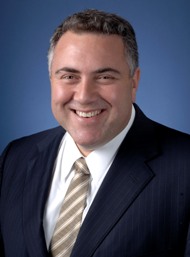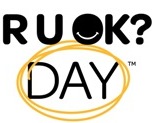 Earlier this month Joe Hockey, the federal Member for North Sydney and the Shadow Treasurer, delivered an address to the Sydney Instute titled In Defence of God.
Earlier this month Joe Hockey, the federal Member for North Sydney and the Shadow Treasurer, delivered an address to the Sydney Instute titled In Defence of God.
Mr Hockey believes that those who would sneer at religious faith have it wrong.
Faith and religion have come under assault in recent times from several best-selling and high profile commentators. I want to respond to the challenge that they have posed to those of us who take a positive view about the role of faith in the advancement of humanity.
He boldly defends faith and a belief in God but his understanding of who God is and the reliability of the Christian scriptures will not please everyone.
I do think that one of the reasons why Christian faith has declined in the Western world is because of the reliance placed on a literal reading of the testaments by church leaders.
Such an approach has tangled the Christian faith in a confusion of contradictions.
By encouraging literalist analysis of the Bible many churches have inadvertently invited people to question the validity of a faith that seems to be based on questionable facts or outdated prescriptions.
He rejects the God of the Old Testament as being a God intent on revenge.
Mr Hockey’s understanding of faith is a lot more about respect for others, acts of service, moral strength and working for the greater good. His faith is noble and all inclusive yet, I believe, without a strong anchor.
My regular Wednesday morning guest on 98.5 Sonshine FM is Ross Clifford who is the Principal of Morling College in New South Wales and Vice President elect of the Baptist World Alliance. Each week we chat about a range of issues relating to spirituality and belief.
Today we discussed Joe Hockey’s address and asked the question of who he believes Jesus to be. Ross recently had the opportunity to speak directly with Joe Hockey and sought clarification on his address. You can hear our discussion by clicking the play button on the audio player at the bottom of this post.
While I don’t hold to the same understanding of faith that Mr Hockey does, I applaud his honesty and boldness in raising the issues that he has.
[audio:http://mpegmedia.sonshinefm.ws/feeds/SPI251109_1337.mp3]
Do you think some of your friends would enjoy reading Defending God? Please use the buttons below to share the post. Thanks.
 I made it … and just over a month early.
I made it … and just over a month early.
 In Roald Dahl’s book Charlie & the Chocolate Factory, Willy Wonka gives away a number of gold tickets which allow a group of children and their guardians to take a behind the scenes look at Wonka’s chocolate factory. The factory turns out to be an amazing place full of surprises.
In Roald Dahl’s book Charlie & the Chocolate Factory, Willy Wonka gives away a number of gold tickets which allow a group of children and their guardians to take a behind the scenes look at Wonka’s chocolate factory. The factory turns out to be an amazing place full of surprises. Losing someone to suicide is such a devastating experience. There’s no chance to talk things through and work towards a solution. It’s an event that fills the rest of your life with so many ‘what if’ questions.
Losing someone to suicide is such a devastating experience. There’s no chance to talk things through and work towards a solution. It’s an event that fills the rest of your life with so many ‘what if’ questions.
 Earlier this month Joe Hockey, the federal Member for North Sydney and the Shadow Treasurer, delivered an address to the Sydney Instute titled
Earlier this month Joe Hockey, the federal Member for North Sydney and the Shadow Treasurer, delivered an address to the Sydney Instute titled